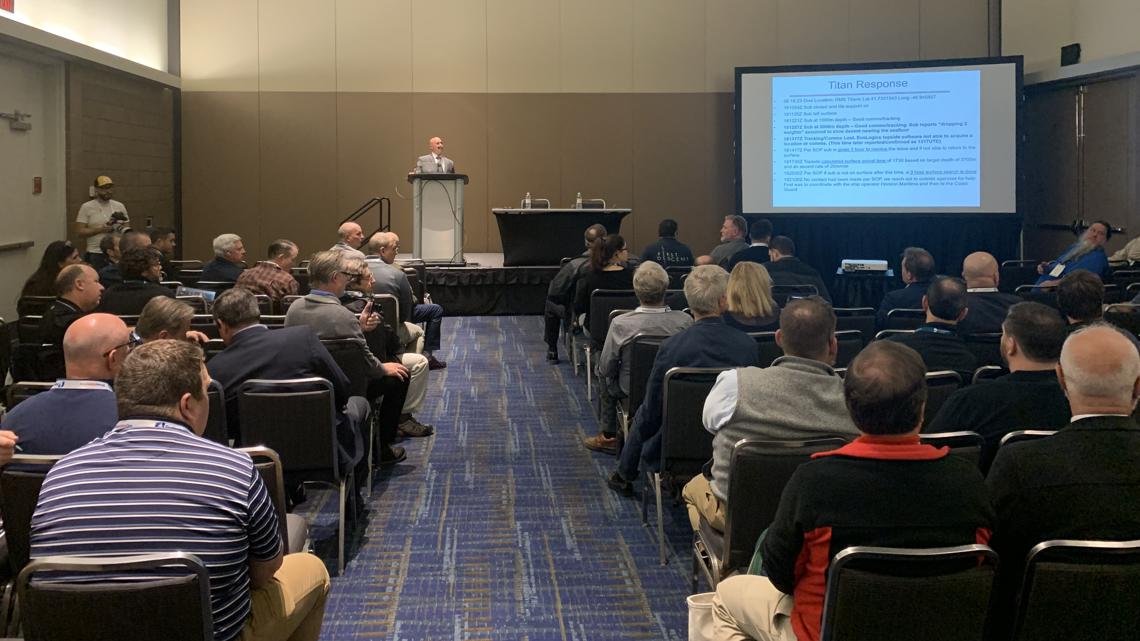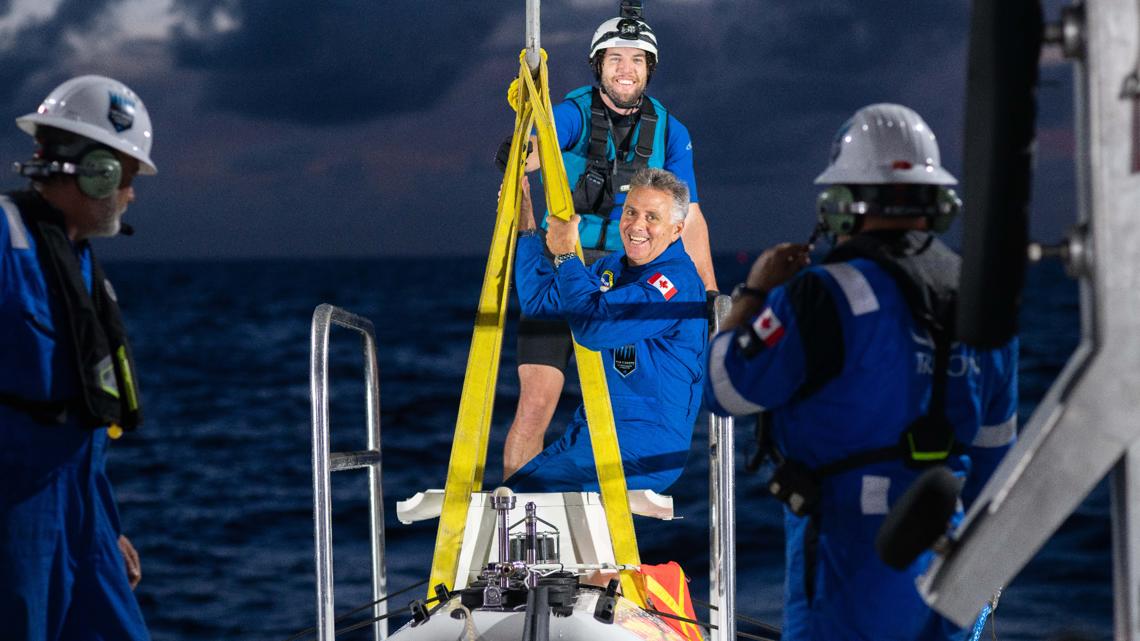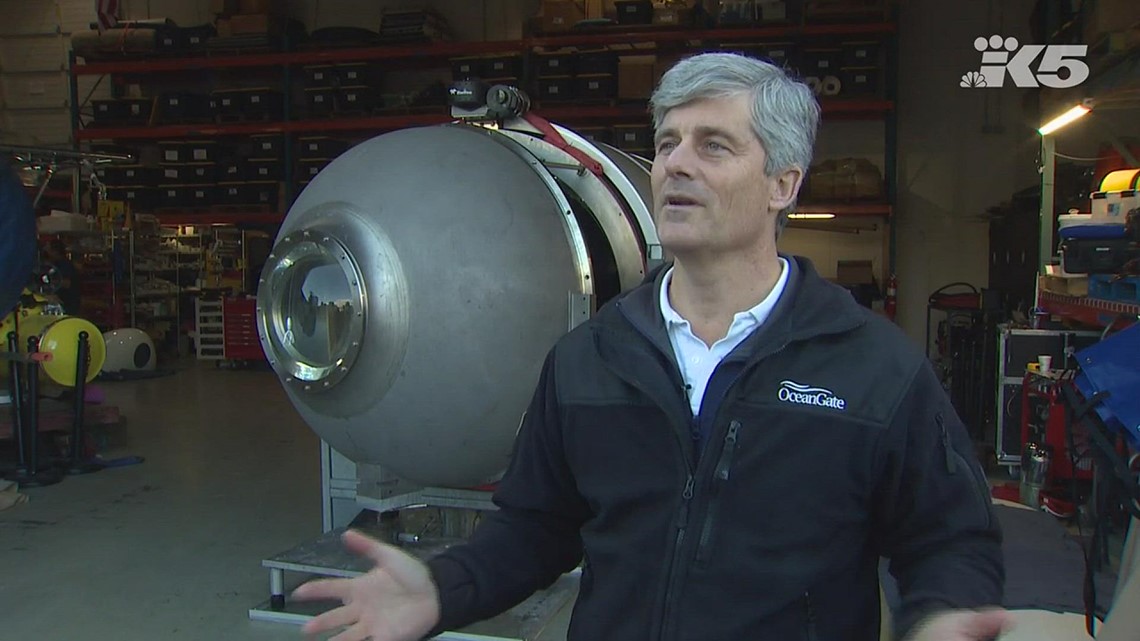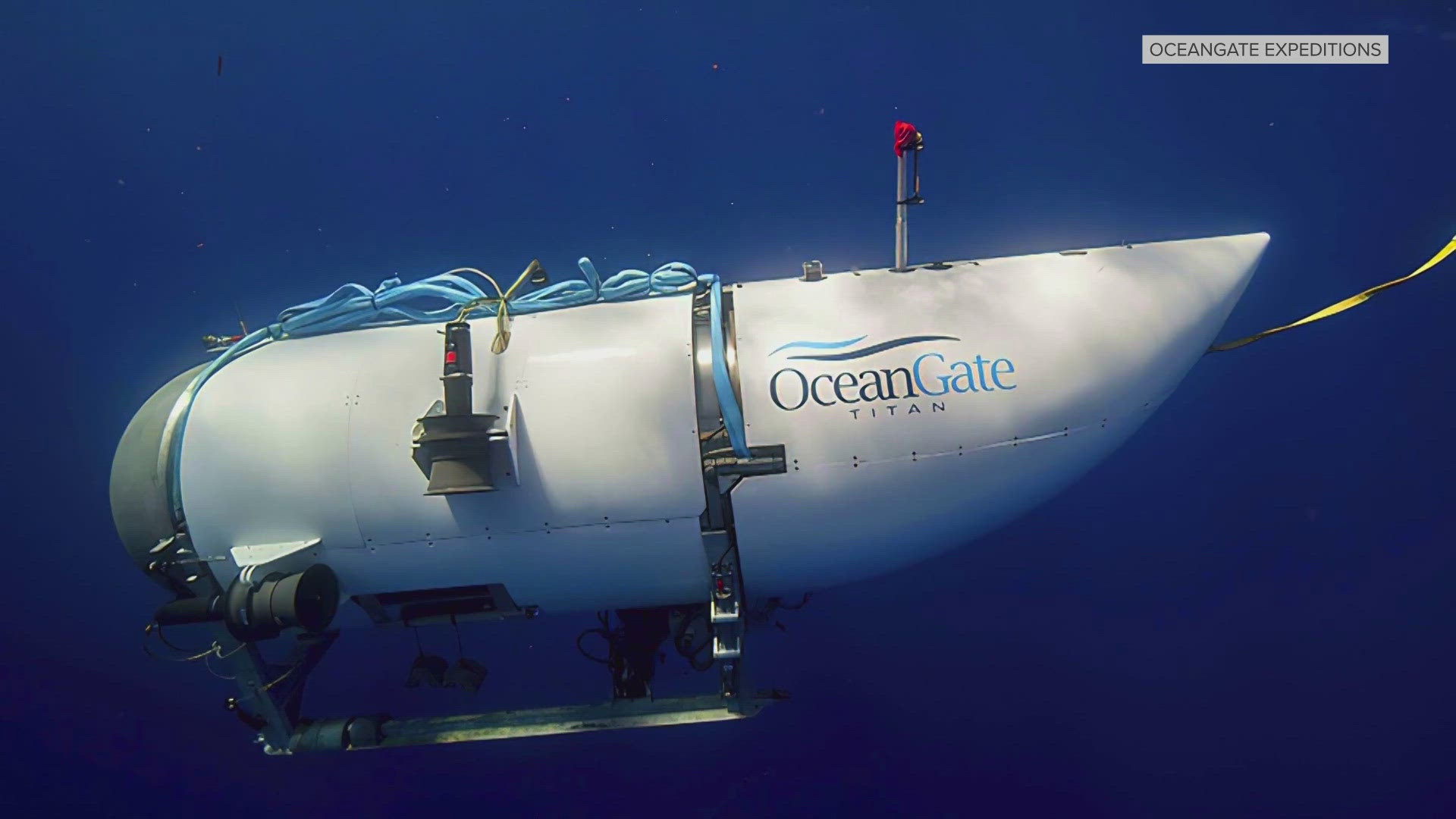SEATTLE — A year after an Everett company's deep-sea submersible headed for the Titanic suffered a “catastrophic implosion,” killing all five on board, professionals are advocating for better global oversight of manned underwater vehicles.
The U.S. Coast Guard said Friday that its Marine Board Investigation into the contributing factors of the Titan submersible’s fatal June 18, 2023 dive “remains active but will take longer than initially projected to complete.”
As professionals in the small industry of manned underwater vehicles anxiously await the findings, the tragedy has led some to join forces in a new lobbying group advocating for a universal standard on how submersibles are regulated worldwide.
“We have a lot of rules for submersibles, but there's ambiguity on how these rules are being applied,” said Will Kohnen, the executive director of the new nonprofit, called the World Submarine Organization. “It just needs to be more clear, and more importantly, countries around the world need to apply them equally.”
The group's leaders said they’re hopeful the efforts will lead to better clarity and consistency with how safety measures are enforced across international waters as vessels jump from port to port.
"We want to make it very simple for the captain of a port — whether that's in Canada or the United States or Europe or South America... since the captain of the port is not going to be an expert in submersibles," said Gard Clark, a retired U.S. Navy submarine captain and the deputy director of the World Submarine Organization. "They're responsible for whatever vessels go in the water."
Kohnen, who also chairs the submarine committee of the Marine Technology Society, said industry representatives from 16 countries – including the US, France, Japan, India and Germany – were at the table for discussions on the issue at the 2023 Annual Submarine Symposium in late November. It was the group’s first gathering since the Titan implosion last June.


‘It frightened people about these brilliant machines’
Experts said the Titan tragedy deeply impacted the business of submarine and submersible manufacturers, and it also killed the dreams of many hoping to someday dive to the deep sea.
“One of the tragic outcomes, aside from the loss of life, was that it frightened people about these brilliant machines. It made people scared of them,” said Patrick Lahey, CEO and founder of Triton Submarines, a Florida-based company backed by ‘Avatar’ and ‘Titanic’ Director James Cameron. "Human-occupied vehicles are an important part of the future of continued exploration in the deep sea."
Lahey’s company has delivered more than two dozen submersibles to private yacht owners, researchers and high-profile filmmakers, which he said, have been used safely on thousands of dives – including some that made history in the deepest part of the ocean.


He said OceanGate, the now-shuttered company behind the “experimental” Titan submersible, was an outlier that dodged safety requirements and certification in an industry that has been largely responsible.
“My goal is to try and reeducate the market,” Lahey said. “There is a stark difference between … that experimental contraption that killed people and should never have been allowed to carry human beings, and the beautifully designed, thoughtfully engineered machines that we create that go through this very arduous certification process.”
There are 11 globally-recognized marine classification agencies that set rules for the design, construction, inspection and testing of submersibles. In addition, the Coast Guard and the International Maritime Organization set regulations for passenger-carrying submersibles.
The Titan was an unclassed “experimental” vessel made with a carbon fiber hull, which industry experts said hadn't been pressure tested over time in such extreme depths, like the roughly 12,500-foot depth of the Titanic. The Titan submersible was designed to hold five passengers.
OceanGate CEO Stockton Rush, who died on the sub along with four people who purchased a ticket to join him on the dive to the wreckage, had publicly rejected industry standards that would have imposed greater scrutiny on his company’s vessels and operations. He said the rules and regulations hadn’t caught up with his company's innovation, and he insisted OceanGate's Titan was safe.


“Human occupied vehicles that are certified and accredited have a 50-year track record of perfect safety,” Lahey said. “We need to do a better job of ensuring that experimental craft have no place in human occupied exploration of the deep sea.”
In 2018, Kohnen and others tried to stop Rush from moving forward with his Titan expeditions to the Titanic. They warned him his plans could result in a catastrophic outcome that would have “serious consequences” for everyone in the industry.
Industry professionals have accused Rush of taking advantage of the industry’s ambiguous rules by using clever tactics. A prime example, they said, is that OceanGate called paying customers “mission specialists” to skirt around the U.S. Coast Guard’s rules for passenger-carrying submersibles.
“By definition, if they were ‘mission specialists,’ they’re part of the crew, and they were not considered passengers. Therefore, they were not subject to the Coast Guard regulations,” Kohnen said. “It was one of his weasel ways around that.”
A future Titanic dive
As deep-sea exploration professionals work to bounce back from the black mark the Titan disaster left on their field, Lahey’s working on a new project to prove it’s possible to safely innovate in the ocean — even at the Titanic.
"We need innovation, but we need it done responsibly," Lahey said.
He said he plans to go on a voyage with Ohio real estate magnate Larry Connor to the historic shipwreck, where the Titan was headed when it imploded.
Lahey’s company, Triton Submarines, is building a new submersible for the journey, which is expected to have a fully-transparent pressure boundary made from acrylic.
“So you can see through it... It will be a fully immersive experience," he said. “There’s never been a subject that can go to that depth with a transparent pressure boundary. So, that’s exciting.”
Unlike OceanGate’s Titan, Lahey said his Titanic-bound submersible will be fully certified to meet industry standards.
“If you want to be a pioneer, you want to be a maverick, you want to be an innovator, than you should be willing to submit ideas … to a review process,” he said. “You want to build a robot? You want to build an autonomous vehicle? Go for it. But if you’re putting human beings in a machine that’s going to take them into the ocean – particularly the deep ocean – you have to be held to a higher standard.”
Lahey said his targeted date for the submersible to begin sea trials is in spring 2026.

